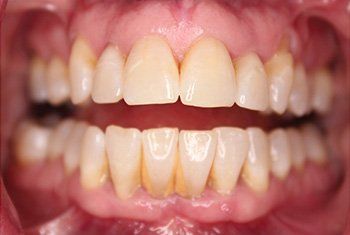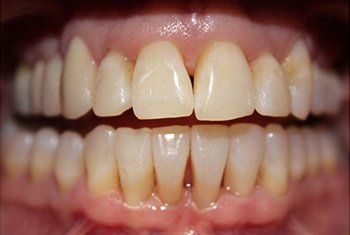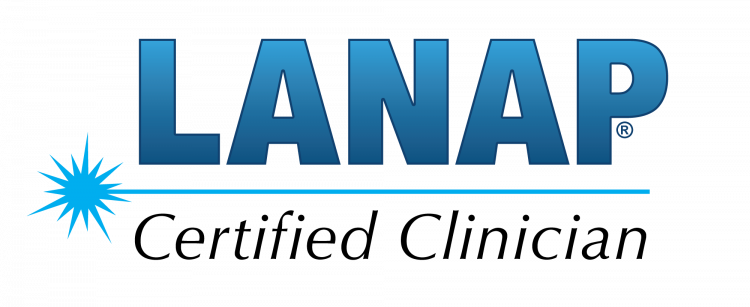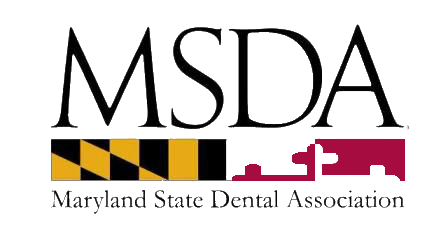Dental Cleaning In Columbia, MD
Smile Savers Dentistry is Your Partner in Dental Health
We at Smile Savers Dentistry understand how important it is to maintain excellent oral health in order to have a lifetime full of confidence. Our practice, led by Dr. Anuja Patel, is dedicated to providing dental care that meets the needs of each patient. The Dental Checkup is one of our cornerstone services. It's a comprehensive exam designed to keep teeth and gums in good health.
Smile Savers Dentistry: Professional Dental Cleanings to Elevate Your Smile
We at Smile Savers Dentistry understand how important it is to maintain excellent oral health in order to have a lifetime full of confidence. Our practice, led by Dr. Anuja Patel, is dedicated to providing dental care that meets the needs of each patient. The Dental Checkup is one of our cornerstone services. It's a comprehensive exam designed to keep teeth and gums in good health.
Dental Cleaning are Important
Regular dental cleanings can help maintain optimal oral health and prevent a variety of dental issues. Even though we brush and floss our teeth at home, plaque can build up over time. This can lead to problems such as gum disease, cavities, and bad breath. Dental cleanings are important for several reasons:
Plaque and Tartar Removal: Plaque is a sticky film formed by bacteria on your teeth during the day. If plaque is not removed immediately, it can turn into calculus (also called tartar), which cannot easily be removed with brushing. The dental cleaning will remove tartar and plaque from your teeth's surfaces, reducing the chances of gum disease and cavities.
Gum Disease Prevention: Gum Disease, also called periodontal disease, is a serious disease that affects the gums and the supporting structures of teeth. Untreated, it can lead to advanced stages of gum disease. It starts with an inflammation of the gingiva (gums). Regular dental cleanings can help to prevent gum disease. They remove plaque and tartar along the gumline and reduce the risk of infection.
Fresh Breath - Bad breath (or halitosis) can cause embarrassment or social discomfort. Bad breath can be caused by bacteria on teeth and gums. Dental cleanings eliminate these bacteria along with food particles, debris, and other contaminants, leaving you feeling fresh and breathless.
Early Detection of Dental Problems: Dr. Patel, our dental hygienist and you will examine your teeth, your gums, and your oral tissues during your dental cleaning to look for signs of dental issues. We can prevent oral cancer, gum disease, and cavities from getting worse by detecting them early.
Oral Health Improves Overall Health: Studies have shown that there is a strong link between oral and overall health. Poor oral health has been linked to systemic diseases such as diabetes, heart disease, and respiratory infections. Regular dental cleanings can protect your overall health.
Schedule Your Dental Checkup Today
Do not wait until you feel pain or discomfort in your mouth to consult a professional. Take proactive steps to maintain a healthy, beautiful smile in the future by scheduling a dental examination at Smile Savers Dentistry. Call us to schedule your appointment today and see the difference that our personalized approach can make.
What to Expect During Your Dental Cleaning
You can expect to receive a personalized and thorough dental cleaning when you visit Smile Savers Dentistry. What happens in a typical dental cleaning?
Professional Assessment: The first step in your dental cleaning is a thorough assessment by one of our highly trained hygienists. They will assess your oral health, and address any concerns you may have. We can tailor the cleaning to your specific needs and achieve optimal results.
Plaque and Tartar Removal: Our hygienists use specialized tools to remove tartar and plaque from your teeth's surfaces and gumline. This procedure not only prevents cavities and gum diseases but also leaves teeth feeling smoother and more refreshed. Our gentle gum care is designed to promote healthy gum tissue and reduce the risk of periodontal problems. Our gentle but effective techniques promote healthy gum tissue, reducing the risk of periodontal disease.
Professional Polishing: After removing tartar and plaque, we will polish your teeth to remove surface stains. This will give you a brighter smile. This polishing process not only improves the look of your teeth but also prevents future staining. You'll leave with a more confident, brighter smile.
Fluoride Treatment (if necessary): If recommended, a fluoride solution may be prescribed following your dental cleaning. This is based on your personal needs and your risk for decay. Fluoride strengthens the enamel, protects against cavities, and provides an extra layer of protection for your teeth in between appointments.
Our hygienists provide customized oral hygiene recommendations at the end of each cleaning appointment. These recommendations will help you maintain your oral health in your home. We're happy to provide you with tips on how to improve your brushing, flossing, and oral care product choices.
Review of Dental Health: Dr. Patel will review your dental health before concluding the appointment and discuss any additional concerns or treatment recommendations. This collaborative approach will ensure that you are fully informed about the state of your oral health and can make an informed decision about your dental care.
Our team will ensure that you are comfortable and relaxed during your dental cleaning. We strive to make the cleaning process as pleasant and stress-free as possible.
We will schedule your next visit after your cleaning to make sure you maintain your preventive dental health. We will also give you tips on how to maintain the results of your dental cleaning until your next appointment so that you can continue to enjoy a healthy and vibrant smile.
Smile Savers - Experience the Difference
Your comfort and satisfaction are our number one priority at Smile Savers Dentistry. You can be assured that your dental cleaning will be in good hands when you choose Smile Savers Dentistry. What makes us different?
Compassionate care: Our compassionate and friendly dental team is committed to providing an enjoyable experience for each patient. We will take the time to answer all your questions and listen to any concerns you might have.
Modern Facility: Our dental office has the latest technology to ensure your safety and comfort. We use the latest tools and techniques, from digital X-rays up to intraoral cameras.
Patient-Centered Attitude: We are committed to building relationships with our clients based on respect, trust, and open communication. Your dental cleaning is tailored to meet your individual needs and preferences.
Convenient Scheduling - We know that your time is precious, so we offer flexible appointment times to fit your hectic lifestyle. We will work with you to schedule an appointment that fits your schedule, whether you are in need of a routine dental cleaning or you have specific concerns.
Caring, Personalized Dentistry in Columbia, Maryland
We help patients of all ages achieve and maintain their ideal oral health and we would love to help you, too. If you need a dentist in Columbia, Ellicott City or surrounding areas of Maryland, call Smile Savers Dentistry at (410) 730-6460.
Frequently Asked Question about Dental Cleaning
What are the Different Types of Dental Cleanings
There are many different types of dental cleansings. These may be recommended depending on the individual's oral hygiene needs. Here are a few common types of dental cleansings:
Routine Dental Cleansing: This is also known as prophylaxis, or scale and Polish. It is the most common form of dental cleaning. This is usually done every six months, as part of preventive care. A dental hygienist uses special instruments during a routine cleaning to remove plaque, tartar and stains. The dental hygienist may also polish and floss the teeth to give them a clean, smooth feeling.
Deep Cleaning (Scaling & Root Planing). Deep cleaning is more intensive and recommended to patients who have gum disease or excess tartar. This involves two steps: root planing and scaling. The scaling process involves the removal of plaque and tartar, even below the gumline. Root planing involves smoothing the roots of the teeth to encourage the gums to reattach. Deep cleaning may be performed in multiple appointments and require local anesthesia.
Periodontal maintenance: These cleanings are recommended to patients who have gum disease (periodontitis). These cleanings should be performed at least every three to four month to maintain and manage gum health. This procedure involves root planing and scaling, which is similar to a deep clean, but focuses on maintaining and monitoring gum health.
Gross Debridement - Gross debridement refers to a preliminary cleaning that is performed when plaque and tartar are so thick they prevent a thorough examination. This type of cleaning allows a dentist or hygienist assess the oral health overall and determine an appropriate treatment plan. A follow-up cleaning appointment is scheduled after the gross debridement.
Full-Mouth Debridement: A full-mouth debridement may be performed if there is extensive tartar accumulation, which makes a thorough examination and diagnosis difficult. This cleaning type involves removing large amounts of tartar and plaque to allow for a more thorough examination. After a full mouth debridement, a follow-up appointment is usually scheduled for additional treatment or cleaning.
You should be aware that the type of dental cleaning recommended to an individual can vary depending on the oral health of the patient and the professional judgement of the dentist or dental hygiene. Always consult a dental professional to assess your needs and make appropriate recommendations.
What is the Importance of Dental Cleaning
Dental cleaning (also known as dental prophylaxis) is important for good oral health. Dental cleaning is essential for a number of reasons.
Plaque and Tartar Removing: Dental cleaning removes plaque and tartar. Plaque, a filmy substance that sticks to the teeth and contains bacteria, is formed. Plaque can become tartar if it is not removed. Regular brushing and flossing will not be enough to remove this. Tartar can cause gum disease and tooth decay.
Preventing Gum Disease. Gum disease (also known as periodontal diseases) is caused by bacteria found in plaque and tartar. Untreated, it can lead to gum inflammation, bleeding and bad breath. It may even cause tooth loss. By removing plaque, tartar and other buildups from the teeth, regular dental cleanings can help manage and prevent gum disease.
Early detection of oral problems: Dental hygienists and dentists examine the mouth, teeth, and gums for signs of oral issues. Regular cleanings can help detect problems early, such as gum disease, cancer of the mouth, and cavities. Early detection allows for timely treatment and intervention, which could prevent more expensive and extensive dental procedures in future.
Fresher Breath & Improved Aesthetics - Dental cleaning removes plaque, tartar and surface stains. This results in a fresher, brighter smile and better breath. Dental cleanings help to combat bad breath caused by oral bacteria. The removal of surface stains can also improve the look of your teeth.
Oral health benefits overall health: Oral and general health are closely related. Untreated dental problems and poor oral hygiene have been linked to a variety of systemic conditions including cardiovascular disease and diabetes. Regular dental cleanings help maintain good oral health and reduce the risk of systemic complications.
Regular dental cleanings can help maintain and achieve optimal oral health. Consult a dentist who can evaluate your needs and give you advice on how often to have dental cleanings depending on your oral condition.
How Often Should I Have a Dental Cleaning?
Dental cleanings are recommended by Dr. Patel and dental hygienist based on your dental health, as well as your risk of developing dental problems.In general, however, it is recommended that you have a dental cleaning at least every six months.
Individuals with good dental health, who do not have gum disease or cavities often, are recommended to maintain a six-month period. Regular dental cleanings are recommended every six months to prevent plaque build-up, maintain healthy gums and detect any oral health issues early.
Some people, however, may need more frequent cleanings depending on their needs. Here are some examples:
Gum Disease - If you've been diagnosed with periodontal disease or have had a history of problems with your gums, Dr. Patel might recommend more frequent cleanings. It is recommended that you have this done every three or four months in order to manage and control the gum disease.
Increased Tartar Buildup - If you tend to build up a lot of tartar quickly (calcified plaque), Dr. Patel will recommend that you get more frequent cleanings. This will help to reduce the risk of developing gum disease and other complications.
Dental Treatments or Conditions: Some dental treatments or conditions, like braces or dental implants, require more frequent cleanings. Dr. Patel or orthodontic specialist will make specific recommendations for your situation.
You should always communicate with your dental hygienist or dentist about any changes in your oral hygiene, your oral history, and any concerns that you might have. They can assess your needs and determine the frequency of cleanings that are right for you.
Regular dental cleanings is only one part of good oral hygiene. For optimal oral health, it is important to maintain good oral hygiene at home. This includes brushing at least twice daily and flossing every day.
Is Dental Cleaning Painful?
As dental cleaning is non-invasive, it is not usually painful. Some people may feel mild discomfort during the cleaning process. There are several factors that may contribute to the sensation you feel during a dental clean:
Scaling and root planing: If your gums are infected or you have excessive tartar, a deep cleaning may be required. This involves cleaning beneath the gumline as well as smoothing out the roots of the teeth. It can cause mild discomfort, particularly if your gums are sensitive or you have exposed tooth roots. Dr. Patel or dental hygiene may use local anesthesia in such cases to make the procedure more pleasant.
Gum Sensitivity - If your gums are sensitive or inflamed, you might experience some sensitivity when cleaning. Dental instruments can cause discomfort during the cleaning process. Your dental professional will do everything possible to ensure that you are comfortable and minimize any discomfort.
You may feel some sensitivity when cleaning your teeth if you are sensitive to temperatures such as cold or heat. Scaling, which involves removing plaque and tartar from the teeth, can temporarily increase tooth sensitivity. Your dental professional will use the appropriate technique and may suggest desensitizing toothpaste or agents to manage sensitivity.
If you feel any discomfort, it's important that you tell Dr. Patel. You can ask them to adjust their technique, or they can take other steps to make you feel more comfortable.
Dental cleaning is a procedure that can be tolerated by most people, even if it may cause mild discomfort or sensations for some. Regular dental cleanings are essential to maintaining good oral hygiene. They far outweigh the discomfort and sensitivity experienced during the procedure.
How Long Should a Typical Dental Cleaning Take?
The length of a dental cleaning appointment can vary depending on a number of factors. These include the oral health of the patient, any dental problems present, and how thorough the cleaning is. A routine dental cleaning can take between 30 minutes and an hour.
This is a breakdown of the various stages and timeframes that are involved in a dental clean:
The dentist or dental hygiene will perform an oral examination before cleaning your teeth to determine the state of your oral health. Checking your teeth, gums and overall oral health is part of this process. This may take several minutes.
Plaque and Tartar removal: The dental hygiene will use special instruments to remove tartar and plaque from your teeth. Scaling involves scraping the buildup off the surface of the teeth. This step may take a longer time depending on how much plaque and tartar is present.
Tooth polishing is done by the dental hygienist after scaling. The dental hygienist uses a rotating toothbrush or rubber cup filled with gritty toothpaste to remove surface stains. The process of polishing teeth usually takes only a few moments.
Instructions for Oral Hygiene and Flossing: The dental hygiene specialist will floss your teeth in order to remove any plaque or debris that may still be between your teeth. The dental hygienist may also give you instructions on how to brush and floss your teeth according to the needs of your mouth.
Additional Procedures: If necessary, additional procedures may be performed during your cleaning appointment. This may include fluoride treatments, dental X-rays or treatment recommendations.
The duration of a dental appointment can vary depending on the individual. Your cleaning appointment could take longer if you have a lot of tartar, need a deep clean, or have dental issues. If you've been away from your regular dental appointments for a long time, the first cleaning may take longer.
You should discuss with Dr. Patel the approximate duration of your dental appointment in advance. They can give you more detailed information based on specific circumstances.
What Happens During a Teeth Cleaning?
A teeth cleaning, or dental prophylaxis as it is also called, involves a number of procedures to remove plaque and tartar from teeth, improve oral health, and remove stains. This is a brief overview of what takes place during a teeth cleaning.
Oral Exam: Your dental hygienist will examine your teeth and gums. They will check for any signs of oral health problems, such as gum disease or cavities.
Plaque and Tartar Removing (Scaling). The dental professional uses specialized dental tools to remove plaque and tartar. Scaling is the name of this process. The hygienist uses a scraper to carefully remove plaque and tartar from the teeth and gum line. This helps to prevent gum disease and tooth decay.
The dental hygienist polishes your teeth after scaling. The dental hygienist will use a rotating toothbrush or rubber cup filled with mildly abrasive material, similar to toothpaste. This polishing removes surface stains, giving your teeth a polished and smooth appearance.
Flossing - The dentist will floss between your teeth in order to remove any plaque or debris. This is an important step for a thorough cleaning. It also helps to prevent cavities and gum disease.
Rinsing or Suctioning During the cleaning procedure, the dental hygiene professional may rinse the mouth with mouthwash or water to remove any cleaning agents or debris. The dental hygienist may use a suction machine to remove any excess saliva or water.
Fluoride Treatment: This treatment is optional and may be recommended by Dr. Patel based on the oral health issues you are experiencing. Fluoride strengthens teeth and helps protect against tooth decay. Fluoride is usually applied in the form of a foam, gel or varnish, and left for a short time on teeth.
Dental Hygiene Instructions - The dental hygienist provides personalized oral hygiene instruction tailored to your needs. They will provide guidance on the proper technique for brushing and flossing, recommend appropriate oral care products and answer any questions or concerns you may have.
The dental professional will make sure you are comfortable and take care of any discomfort that may occur. Local anesthesia may be used for certain procedures, particularly during deep cleanings and if there are sensitive areas.
You should be aware that the procedures used during a dental cleaning may vary depending on your oral condition, Dr. Patel’s recommendations, and the office's policies. The dental team will tailor the cleaning to your specific needs in order to promote optimal oral hygiene.
Are Dental Hygienists Able to Remove All Tartar During a Dental Cleaning?
Dental hygienists have been trained to remove significant amounts of tartar during a dental cleaning. It's important to remember that removing all the tartar in a single dental cleaning may not be possible.
The amount of tartar removed by a dental cleaning is dependent on many factors, including the level of tartar, the time allotted for cleaning, as well as the instruments and techniques that are used. Dental hygienists remove tartar by using specialized instruments such as ultrasonic and scalers.
If there is a large amount of tartar, or if it has hardened, and stuck to the teeth strongly, you may need multiple cleaning sessions, or more intensive procedures such as root planing (scaling). Deep cleaning involves removing tartar from below the gumline, and smoothing out the tooth roots in order to promote gum health.
For optimal oral health, it is important to maintain good oral hygiene at home and attend regular dental cleanings. Dental hygienists try to remove as much of the tartar during a cleaning as possible, but it is important to follow Dr. Patel's recommendations for regular cleanings to reduce tartar buildup and to address any buildup that may remain over time.
It's also worth noting that tartar can re-form after a dental clean if oral hygiene is not practiced consistently. Maintaining a healthy lifestyle, brushing twice daily, flossing every day and eating a balanced diet will help to prevent tartar from forming.
Can Dental Cleanings Damage the Teeth?
Dental cleaning, when performed by a dental professional who is trained in the procedure, is generally safe and does not damage teeth. There are some things to consider:
Sensitivity Some people may experience temporary tooth pain after a dental cleaning. The sensitivity usually subsides within a few days. This sensitivity can be caused by the removal of tartar and plaque, which exposes the tooth surfaces underneath. This sensitivity is temporary and will not damage your teeth permanently.
Existing Dental Issues - If you already have dental problems such as weak tooth enamel, exposed roots or cavities, cleaning may cause discomfort or sensitivity. Dental professionals are trained in taking the necessary precautions and being cautious when treating patients with certain dental conditions.
Gum irritation: Some people may experience temporary discomfort or gum irritation after a dental cleaning. It can occur if the tissues of the gums are inflamed or sensitive. The dental professional should use the right technique and take care to minimize any gum irritation.
You should communicate with Dr. Patel any concerns you have before and during the procedure. The dentist can adjust the technique, use a desensitizing agent if needed, or make additional recommendations to ensure that you are comfortable and safe.
Overall, dental cleanings are more beneficial than any possible risks in terms of preventing oral problems and maintaining good hygiene. Regular dental cleanings and good oral hygiene at home are essential to maintaining good oral health.
How Do I Treat Sensitive Teeth After Dental Cleaning?
There are several things you can do to relieve the pain if you have tooth sensitivity following a dental cleaning. Here are some tips to treat sensitive teeth.
Use a desensitizing toothpaste: Switch to a special toothpaste formulated for sensitive tooth. These toothpastes have desensitizing ingredients that reduce tooth sensitivity. Use the toothpaste according to instructions, usually by brushing twice daily.
Avoid foods and drinks that can cause tooth sensitivity: Try to avoid eating or drinking extremely hot, cold or sour food and beverages. Choose lukewarm food or drinks instead.
Use a Soft Bristled Toothbrush. Switch to a toothbrush with a soft bristle to reduce irritation. Avoid aggressive brushing as it can worsen sensitivity.
Avoid acidic food and drinks: Acidic foods can erode enamel and increase tooth sensitivity. Avoid acidic foods and drinks such as tomatoes, citrus fruits, juices, and sodas.
Use Proper Oral Care: Follow a routine of good oral care by brushing twice daily with fluoride toothpaste, and flossing every day. Be gentle when flossing or brushing sensitive areas.
Rinse mouth with fluoride mouthwash. This will help to strengthen your tooth enamel and reduce sensitive teeth. Follow the directions on the mouthwash.
Apply a Desensitizing Rinse or Gel: Dr. Patel might recommend that you apply a desensitizing rinse or gel to the sensitive area. These products provide temporary relief, and can help desensitize teeth.
Give it Time: Sensitivity after a dental clean is temporary and will subside in a few days. Allow your teeth to adjust and heal on their own.
Consult Dr. Patel if your tooth sensitivity persists, or worsens with time. Dr. Patel can assess your situation and determine the cause of the sensitivity. They will then provide you with appropriate treatment options.
Regular dental cleanings will help you maintain good oral health. Any temporary sensitivity that may occur is usually a minor issue.











